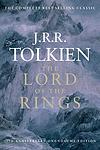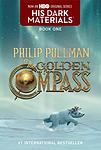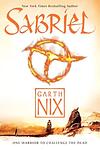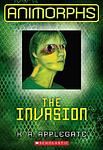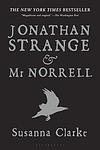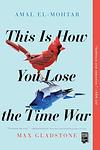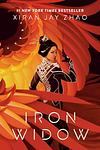Powell's Essential List: 25 Essential Sci-Fi and Fantasy Books Isn't Enough: Our 25 Honorable Mentions
This is one of the 284 lists we use to generate our main The Greatest Books list.
-
Frankenstein by Mary Shelley
This classic novel tells the story of a young scientist who creates a grotesque but sentient creature in an unorthodox scientific experiment. The scientist, horrified by his creation, abandons it, leading the creature to seek revenge. The novel explores themes of ambition, responsibility, guilt, and the potential consequences of playing God.
-
Foundation by Isaac Asimov
This science fiction novel centers around Hari Seldon, a mathematician who has developed a branch of mathematics known as psychohistory. With it, he can predict the future on a large scale. Seldon foresees the imminent fall of the Galactic Empire, which encompasses the entire Milky Way, and a dark age lasting 30,000 years before a second great empire arises. To shorten this period of barbarism, he creates two Foundations at opposite ends of the galaxy. The book follows the first few centuries of the Foundation's existence, focusing on the scientists as they develop new technologies and negotiate with neighboring planets.
-
Fictions by Jorge Luis Borges
"Collected Fiction" is a compilation of stories by a renowned author that takes readers on a journey through a world of philosophical paradoxes, intellectual humor, and fantastical realities. The book features a range of narratives, from complex, multi-layered tales of labyrinths and detective investigations, to metaphysical explorations of infinity and the nature of identity. It offers an immersive and thought-provoking reading experience, blurring the boundaries between reality and fiction, past and present, and the self and the universe.
-
The Lord of the Rings by J. R. R. Tolkien
This epic high-fantasy novel centers around a modest hobbit who is entrusted with the task of destroying a powerful ring that could enable the dark lord to conquer the world. Accompanied by a diverse group of companions, the hobbit embarks on a perilous journey across Middle-earth, battling evil forces and facing numerous challenges. The narrative, rich in mythology and complex themes of good versus evil, friendship, and heroism, has had a profound influence on the fantasy genre.
-
Dune by Frank Herbert
Set in a distant future, the novel follows Paul Atreides, whose family assumes control of the desert planet Arrakis. As the only producer of a highly valuable resource, jurisdiction over Arrakis is contested among competing noble families. After Paul and his family are betrayed, the story explores themes of politics, religion, and man’s relationship to nature, as Paul leads a rebellion to restore his family's reign.
-
The Left Hand Of Darkness by Ursula K. Le Guin
The novel is a groundbreaking work of science fiction that explores themes of gender, politics, and identity. Set on a planet called Gethen, where the inhabitants are ambisexual, shifting between male and female, the story follows an envoy from Earth who struggles to understand this alien society. As he navigates the complex political landscape of Gethen, he must also grapple with his own preconceptions about gender and sexuality. The book is a profound exploration of difference, otherness, and what it means to be human.
-
Ringworld by Larry Niven
In this science fiction novel, a motley crew of explorers, including a 200-year-old human, a young woman with lucky genes, a cat-like alien, and a two-headed alien guide, embark on a journey to investigate an artificial ring orbiting a star. This colossal structure, known as the Ringworld, has the surface area of millions of Earths and harbors many mysteries. As the team explores the vast, enigmatic world, they encounter a variety of advanced technologies and alien species, while also grappling with the physics and dangers of the ring's environment. Their mission becomes a struggle for survival and a quest to uncover the origins and purpose of the Ringworld.
-
Dhalgren by Samuel R. Delany
The novel follows the journey of a poet with amnesia, known only as the Kid, through a dystopian city named Bellona. The city has been isolated from the rest of the world following a catastrophic event of unknown origin. The Kid navigates through a society where time, identity, and reality are all fluid, engaging with various groups of outcasts and explorers. The narrative is marked by its experimental style, incorporating elements of science fiction, surrealism, and metafiction.
-
The Hitchhiker's Guide to the Galaxy by Douglas Adams
This comedic science fiction novel follows the intergalactic adventures of an unwitting human, Arthur Dent, who is rescued just before Earth's destruction by his friend Ford Prefect, a researcher for a galactic travel guide. Together, they hitch a ride on a stolen spaceship, encountering a range of bizarre characters, including a depressed robot and a two-headed ex-president of the galaxy. Through a series of satirical and absurd escapades, the book explores themes of existentialism, bureaucracy, and the absurdity of life, all while poking fun at the science fiction genre and offering witty commentary on the human condition.
-
Parable Of The Sower by Octavia E. Butler
In a dystopian future where society has collapsed due to environmental and economic crises, a young woman named Lauren Olamina possesses a unique ability to feel the pain and pleasure of others. As she witnesses her community being torn apart by violence and religious fanaticism, Lauren embarks on a perilous journey to find a new safe haven and establish her own religion based on empathy and survival. Through her thought-provoking narrative, the book explores themes of resilience, spirituality, and the power of human connection in the face of adversity.
-
The Golden Compass by Philip Pullman
The book follows the journey of a young girl in a parallel universe where people's souls exist outside of their bodies as animal companions, called daemons. When her friend is kidnapped by a mysterious organization, she sets off on a quest to rescue him, armed with a truth-telling device known as the golden compass. Along the way, she encounters a variety of characters, including witches, armored bears, and aeronauts, and uncovers a sinister plot involving the children of her world.
-
Sabriel by Garth Nix
In a world where the living is bordered by the realm of the dead, a young woman named Sabriel inherits the role of Abhorsen from her father, tasked with keeping the dead at bay and maintaining the balance between life and death. Raised in a boarding school away from the magical Old Kingdom, she must quickly master the art of necromancy and wield the power of the Charter—a set of magical symbols—to navigate through perilous lands and confront a powerful evil that threatens to overwhelm the world of the living. Along her journey, Sabriel is aided by a mysterious cat-like creature and a young man ensnared by a powerful spell, as she seeks to fulfill her destiny and restore harmony to her fractured world.
-
The Invasion by K. A. Applegate
"The Invasion" is the first book in a science fiction series that introduces readers to a group of five young friends who stumble upon a crashed alien spaceship and are given the power to morph into any animal they touch by a dying extraterrestrial. This power is a weapon against an unseen invasion by a race of parasitic aliens who secretly take over human bodies. The friends, now with the ability to transform and the knowledge of the alien threat, become the unlikely defenders of Earth, facing not only the challenges of battling the invaders but also the moral dilemmas and the strain on their personal lives that come with leading a double life as part of a guerrilla resistance movement.
-
Jonathan Strange and Mr Norrell by Susanna Clarke
Set in a parallel 19th-century England, this novel tells the story of two practicing magicians, Mr. Norrell and Jonathan Strange. Norrell, who aims to restore magic to respectability in England, is initially thrilled by Strange's natural aptitude for magic, and the two form a student-teacher relationship. However, their partnership soon deteriorates into rivalry as Strange, driven by the loss of his wife to the fairy realm, seeks to reintroduce the old, wilder forms of magic that Norrell disdains. Their conflict escalates, culminating in a magical duel that has profound consequences for the future of magic in England.
-
How To Live Safely In A Science Fictional Universe by Charles Yu
In this metafictional novel, a time machine repairman, trapped in a time loop, searches for his father and the meaning of his existence within a universe that operates on science fiction tropes. As he navigates a landscape filled with paradoxes, dog-eared pages of his life, and a self-aware narrative, he confronts his past and the nature of reality itself. The book blends emotional depth with quantum mechanics, exploring themes of family, memory, and the passage of time, all while breaking the fourth wall and challenging the conventions of storytelling.
-
Station Eleven by Emily St John Mandel
"Station Eleven" is a post-apocalyptic novel that revolves around the lives of several characters before and after a devastating flu pandemic wipes out most of the world's population. The narrative jumps back and forth in time, exploring the interconnectedness of the characters' lives through their shared memories and experiences. The story also follows a traveling Shakespearean theatre company as they navigate the dangers of a collapsed civilization, emphasizing the importance of art and human connection in times of crisis.
-
Autonomous by Annalee Newitz
In a future where biotech has advanced to create patented drugs with the power to extend life, a pirate with a submarine traverses the seas, distributing cheap generic versions of these medications to those who can't afford them. Meanwhile, a military agent and his robot sidekick are on a relentless pursuit to stop her, enforcing the intellectual property laws of powerful pharmaceutical companies. As the chase intensifies, the boundaries between human and machine blur, raising profound questions about autonomy, individual rights, and the ethics of scientific discovery.
-
This Is How You Lose The Time War by Amal El Mohtar, Max Gladstone
In this epistolary science fiction novel, two rival agents, Red and Blue, find themselves on opposite sides of a sprawling temporal conflict known as the Time War. As they carry out missions to manipulate the strands of history for their respective factions, their paths cross in unexpected ways. Through a series of secret letters left across time and space, what begins as taunting correspondence evolves into a deep, forbidden connection. The narrative weaves a complex tapestry of time-travel and intrigue, exploring themes of love, identity, and the consequences of actions within the ever-shifting sands of time. As their bond deepens, Red and Blue must ultimately decide where their loyalties lie and what sacrifices they are willing to make for a chance at a future together.
-
Gideon The Ninth by Tamsyn Muir
In a universe where necromancers hold power, Gideon, a skilled swordswoman, is reluctantly paired with her childhood rival, Harrow, to compete in a deadly trial that could grant them immortality. As they venture into an ancient, decaying mansion filled with secrets and puzzles, they must unravel the mysteries of their world and face sinister forces lurking within. With a blend of dark humor, complex characters, and a gripping plot, "Gideon The Ninth" is a thrilling and unique blend of science fiction and fantasy.
-
A Memory Called Empire by Arkady Martine
In this science fiction novel, an ambassador from a small, independent space station is sent to the heart of a vast interstellar empire to serve as her predecessor's replacement after his mysterious death. As she navigates the complex political landscape of the imperial court, she discovers that her new position comes with many dangers, including a potential crisis that threatens both her home and the empire itself. Armed with her wits and an imprinted AI containing the memories of her predecessor, she must unravel a web of intrigue and conspiracy, while exploring themes of identity, culture, and imperialism.
-
House Of X Powers Of X by Jonathan Hickman
The graphic novel intertwines two interconnected stories that redefine the X-Men's place in the Marvel Universe. It explores a transformative era for mutantkind, where the X-Men, led by Charles Xavier, enact a bold new plan to protect and advance mutant interests. The narrative oscillates between the present day, where mutants establish a sovereign nation on the living island of Krakoa, and various points in a possible future, revealing the long-term ramifications of their actions. As the X-Men grapple with complex moral dilemmas, political intrigue, and existential threats, the series reimagines their mythology, introducing new concepts, characters, and a radical shift in the status quo for mutants in a world that has always feared and hated them.
-
Ninth House by Leigh Bardugo
The book revolves around a young woman with a troubled past who is given a second chance through a scholarship to an elite university, where she becomes involved with the secretive societies that practice magic and the occult. Tasked with monitoring their activities, she uncovers a series of supernatural crimes and mysteries that she must solve, using her own newfound magical abilities and wits. As she delves deeper into the university's hidden world, she confronts the dark power and privilege that fuel these ancient organizations, while also grappling with her own personal demons and histories.
-
The Invisible Life Of Addie La Rue by V. E. Schwab
The book follows the story of a young woman in 18th-century France who, desperate to escape an arranged marriage and yearning for freedom, makes a Faustian bargain with a mysterious god-like figure to live forever without being remembered by anyone she meets. Her immortality becomes a curse as she moves through the centuries, leaving no mark on the world until, 300 years later, she stumbles upon a young man in a bookstore who, to her shock, remembers her name. This encounter unfolds into a tale of love, memory, and the intrinsic value of leaving one's mark on the world.
-
The Memory Police by Yoko Ogawa
In this dystopian novel, an unnamed island is under the control of a mysterious authoritarian force known as the Memory Police, who systematically eliminate objects from the world, erasing memories associated with them from the minds of the populace. The story follows a young novelist who struggles to retain her memories and maintain her identity in a society where both are under constant threat. As more and more disappears, she becomes involved in a dangerous endeavor to hide her editor, who is unable to forget, risking everything to preserve the remnants of their shared past and the essence of their humanity.
-
Iron Widow by Xiran Jay Zhao
In a futuristic world inspired by Chinese history, a young woman seeks vengeance for her sister's death in a patriarchal military system where male pilots of giant Chrysalises, mecha robots used to battle alien mechs, are revered, but female co-pilots must sacrifice their lives to boost the males' psychic energy. She unexpectedly survives the fatal link with her sister's murderer, emerging as a powerful Iron Widow, a rare female pilot who can control a Chrysalis on her own. As she rises through the ranks, she must navigate a treacherous court intrigue, form alliances, and confront the oppressive system, all while unraveling the dark secrets behind the ongoing war with the aliens.
Powells' City of Books, 25 Books
Powell's Books has unveiled a follow-up to their celebrated Essential List: 25 Best Sci-Fi and Fantasy Books of the 21st Century (So Far), introducing an "Honorable Mentions" list that spotlights outstanding titles which narrowly missed inclusion. After extensive deliberations and contributions from the entire Powell's team, this list comprises exceptional science fiction and fantasy books that have significantly impacted the genre. Despite focusing on works published after 1999, to maintain a contemporary perspective, the list also acknowledges timeless classics that, due to various constraints, couldn't be featured in their initial selection. This Honorable Mentions list serves as a tribute to the depth and diversity of the genre, including both beloved works from the last two decades and enduring favorites that continue to resonate with readers. Powell's encourages readers to explore these selections and share their own indispensable titles, further enriching the ongoing conversation about the essential reads in science fiction and fantasy.
Added 2 months ago.
This list has a weight of 36%. To learn more about what this means please visit the Rankings page.
Here is a list of what is decreasing the importance of this list:
- List: only covers a few specific genres
- List: Creator of the list, sells the books on the list
- Voters: specific voter details are lacking
- List: is a follow up/honorable mention to a different list
If you think this is incorrect please e-mail us at [email protected].



